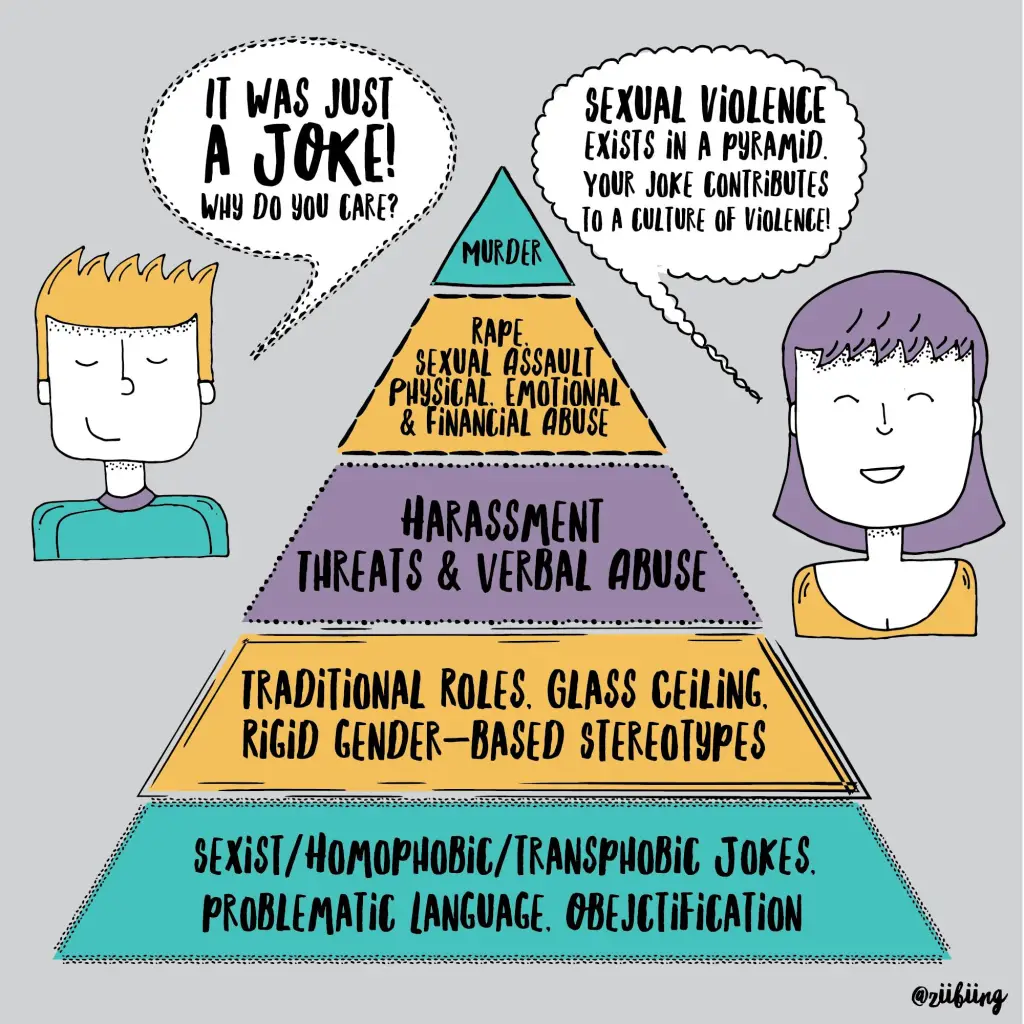The employees of Beta Technologies gather together during lunch hour. Among them is Maria, a talented HR business partner who has recently joined the team. She notices a trend: some of her colleagues often use foul language with sexual innuendos or explicit jokes at the lunch table.
Initially, Maria tries to brush it off, thinking it’s just part of their casual banter. However, over time the comments become more frequent. Maria reflects on this and decides to take action to put this practice to an end.
Step 1 : Maria equips herself with the standing of the law
While she is googling, she finds a recent judgment which upheld sexual harassment charges against a man for using the phrase “f**k off,” deeming it a “sexually coloured” remark.
The court found sufficient grounds to proceed under Sections 354A, 506 and 509 of the Indian Penal Code, 1860. The case involved a man threatening a woman by calling her a “bazaru aurat” and persistently using offensive language. The court emphasized that the offensive phrase was not intended to simply ask the complainant to leave the house, but to outrage her modesty.
Maria finds a study that shows that using foul language at the workplace is detrimental to creating a respectful and inclusive environment. CareerBuilder.com found that 81% of employers surveyed believe swearing at work brings an employee’s professionalism into question.
Steps 2: Maria has an informal discussion with the employees
Armed with information, Maria takes aside each employee to talk to them. In her conversation, she stresses that using abusive language can lead to discomfort, disrespect and intimidation at the workplace. This can also impact their job morale and productivity. She is careful to add that sexually explicit language that targets individuals based on their gender can lead to employees feeling marginalized or disrespected.

Step 3: Maria comes up with 5 solid strategies
Like any HR professional, Maria knows that sound policies are the best solution to shape workplace culture positively. She uses her experience and consults subject matter experts to come up with 5 key strategies:
- Zero-tolerance policy on the use of abusive language at the workplace
- Regular training sessions on professional and respectful communication
- Confidential process for employees to report instances of abusive language
- Directives to Managers and Leaders to use appropriate language
- Resources for employees who struggle with controlling their language
Gradually, Maria notices a positive shift in team dynamics. Her colleagues become more mindful of their language. There is still a lot of banter at the lunch table. But now it is respectful and inclusive of all employees.
Image Credits: Ashley Banks, Pyramid of Sexual Violence


